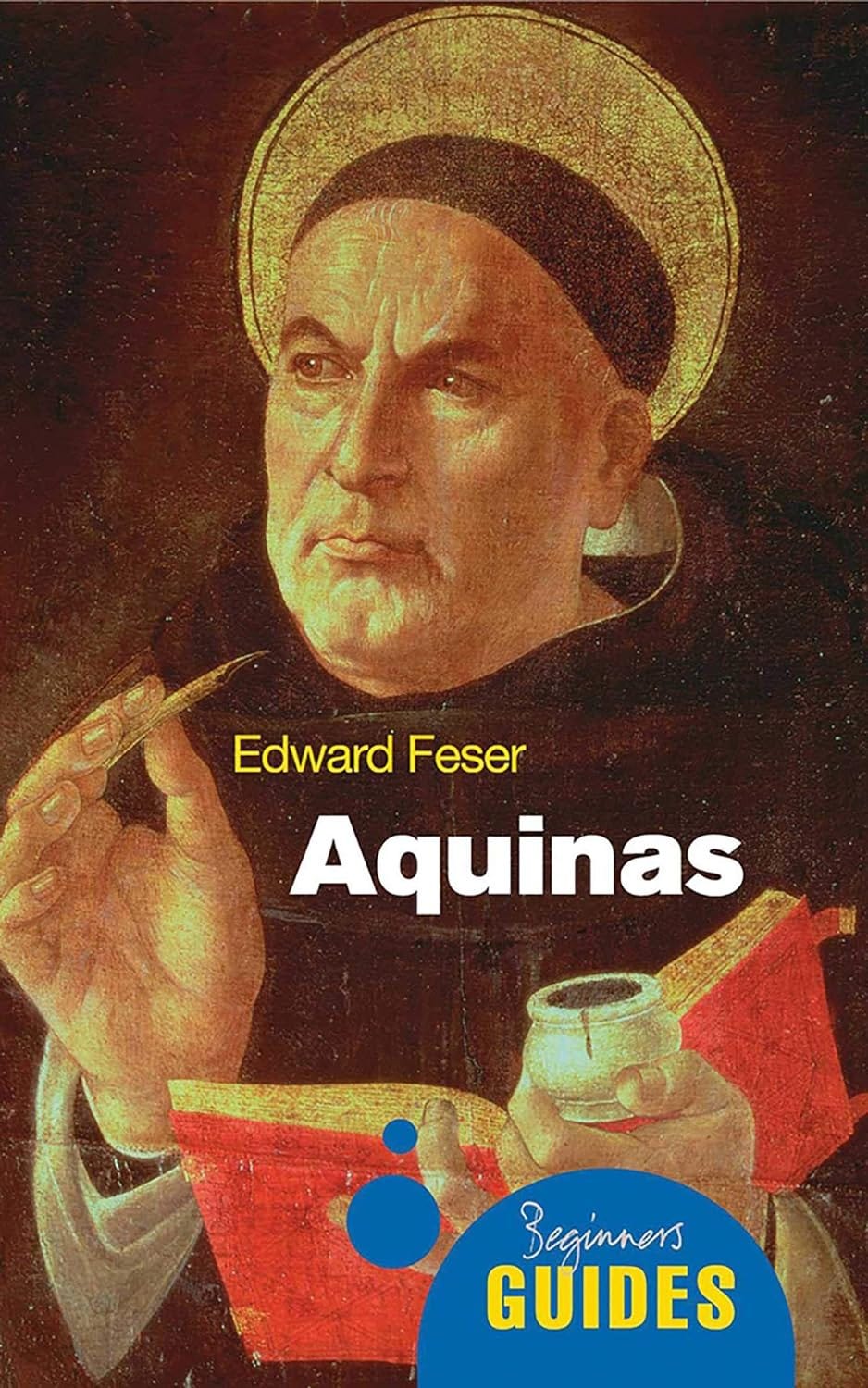Never judge a book by its cover or by its table of content
Extending the Table of Contents in the book "Aquinas: A Beginner's Guide" by Edward Feser
Edward Feser book “Aquinas: A Beginner's Guide (Beginner's Guides)” (link - not affiliated) is outstanding.
I am quite impressed by:
his deep knowledge of Saint Thomas Aquinas and Aristotle philosophy,
his effort to explain it to a modern audience and
his attention to refuting the main objections to these 2 giants.
When I first looked into the Table of Contents, I was far from impressed, I was not expecting.
But how wrong I was!
Never judge a book by its cover or by its table of content.
Edward Feser didactically covers the main topics of Thomistic philosophy and carefully untangles the primary objections posed by modern authors. While reading, I took notes on the main topics for later reference and created an extended Table of Contents, which I am sharing with you now.
Extended Table of Contents for "Aquinas: A Beginner's Guide"
St. Thomas; 12
Metaphysics; 19
Act and Potency; 19
Parmenides impossible change; 19
Aristotle “reply” to Parmenides. Act, Potency and Motion; 21
Further analysis:
1st; potentiality is not in all senses, 22
2nd; potency needs something in act to actualize, 22
A quick overview of self-mover problem (dog example)
3rd; the asymmetry; 22
Act is prior to potency
Hylomorphism; 23
Introduction; 23
Not a reductionistic approach; 26
Form is not as in Plato; 26
The four cause; 27
Introduction; 28
The agent; 30
Form is prior to matter; 30
Final cause importance; 30
Exploring Hume errors; 31
Essence and existence; 36
Introduction; 36
Analyzing the current essentialism and comparing to Aristotle and Aquinas view; 37
Conceptualist of Locke; 38
Universals; 38
Angels; 41
Essence and existence distinction; 42
The Transcendentals; 45
Introduction; 45
Being; 45
Being is the transcendental; 45
Being as truth; 47
Being as good; 48
Evil as absence of good; 49
Final causality; 49
Conflict with modern science; 49
Moliere’s Joke'; 51
Empiricism; 52
Modern Science and metaphysics; 53
The consequences mechanistic denial of final causes; 55
Darwinian evolution against final causality; 59
Genetics and final causality; 60
The modern problem with basic understanding and laws of physics with causality and substance; 63
Efficient Causality; 66
Introduction; 66
Evolution argument; 67
Hume argument; 68
Quantum argument; 70
Being; 71
Introduction; 71
Fregean notion; 71
Kenny objection; 72
Kenny objection on angels; 76
Aquinas’s Aristotelian, not platonic, realism; 76
Natural Theology; 79
Introduction to the five ways; 79
The Five Ways to prove the existence of God; 82
The First Way; 82
Introduction; 82
First Mover is not bible’s God objection; 83
The objection of mover having to have what is moved formally; 85
The infinite series objection; 86
Kenny objections and the “Pure Act” argument; 91
The moving mover objection; 97
The Second Way; 99
Introduction; 99
Stock objection; 100
Kant objection; 101
Difference from first way; 102
Essence and existence; 103
Willian Craig objection; 105
Hume objections; 108
Fallacy of composition objection; 108
The Third Way; 109
Introduction; 109
The possible time objection; 111
Second objection; 113
The second part, the causality and necessity; 115
Essence and Existence distinction; 118
The Fourth Way; 119
Introduction; 119
Modern difficulties; 120
Platonic claim; 120
Multiple gods objection; 124
The science of Aquinas times is not an impediment; 125
Convertibility of the Transcendental; 127
The Fifth Way; 131
Introduction; 131
Comparing to design argument; 131
The relation to the final cause; 134
Not everything has a final cause, but every agent has; 136
The divine attributes; 142
The uniqueness (oneness); 142
Overview of other attributes; 144
The immateriality; 145
The intellect; 146
The will; 146
The perfection; 147
The problem of evil; 148
Simplicity; 149
Frege’s example; 151
Stump / Euthyphro dilemma; 152
Psychology; 155
Philosophy of the mind; 155
The soul; 156
Not the ghost; 157
Aquinas on anima; 158
The machine comparison; 160
Plant’s soul; 162
Ensoulment; 163
Intellect and will; 167
Introduction; 167
The nature of the intellect; 168
Senses, Imagination; 169
Intellect; 172
Forms; 172
Immateriality and Immortality; 177
Hylomorphic dualism; 189
Comparing to cartesian; 189
Property dualism; 191
Aquinas way; 192
Advantages of hylomorphic dualism; 195
Functionalism; 199
Ethics; 203
The good; 204
The three categories of good; 210
Voluntarism; 213
Natural law; 213
Religion and morality; 218


